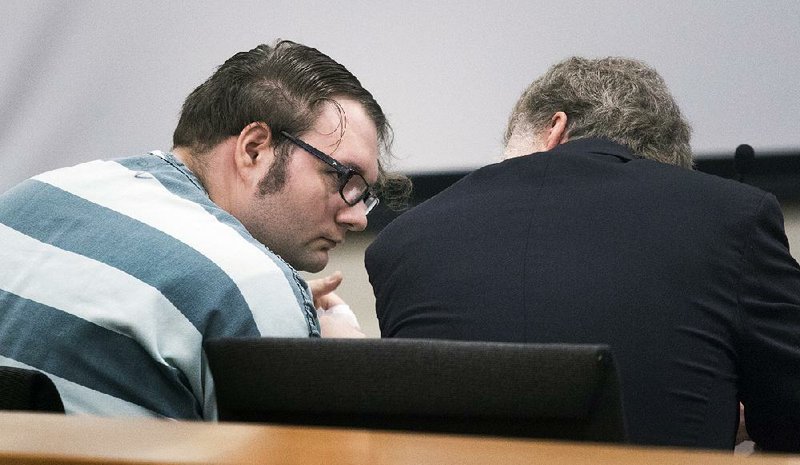After a white supremacist discussed plans on Facebook for a mass shooting at a synagogue, police in Washington state used a new law to quickly seize his 12 firearms, long before he was convicted of any crime.
But a Tennessee father said that when he became alarmed about his son after receiving a suicidal text message, the police determined they could not take the son's guns away. A few months later, the man showed up at a church one Sunday morning and shot seven worshippers, killing one.
Family members and police routinely face difficult decisions when otherwise lawful gun owners reveal an impulse to harm themselves or others, and more states are enacting laws that let authorities take away their weapons.
With bipartisan support in many cases, 17 states and Washington, D.C., have now passed "red flag laws" that allow the court-ordered removal of guns from people who are considered to be dangerous. The shootings that killed 31 people this month in Texas and Ohio have given new momentum to proposals pending in several other states and to a plan in Congress to provide grant money to states that adopt such measures.
The laws have spread since the February 2018 shooting that killed 17 students and staff members at a high school in Parkland, Fla. New York's new law took effect Saturday, and New Jersey's begins Sept. 1. The proliferation of such laws comes despite opposition from gun-rights activists and others who say the measures go too far.
A study published last week about California's law found 21 examples in which people who had threatened public shootings were successfully disarmed.
In jurisdictions where red flag laws have been aggressively enforced, officials say the measures have likely prevented suicides, workplace shootings and domestic killings.
"I'm convinced that having this powerful tool gives our communities the ability to step in and prevent some tragedies from happening," said Mara Elliott, the city attorney in San Diego, where more than 300 gun-violence restraining orders have been issued in less than two years. "Given the numbers that we are seeing, I think that's startling."
In Florida, courts have granted more than 1,800 risk-protection orders since the state's law gained approval in March 2018, data show. Other states report anywhere from dozens to hundreds of cases per year.
The state laws vary greatly, particularly over which individuals can petition for orders and the standard of proof that must be shown for them to be granted. And their enforcement differs by local jurisdiction, with cities such as San Diego and Seattle and pockets of Maryland and Florida using them more aggressively than others.
Proposals in several states, including New Hampshire, Nebraska and Tennessee, have stalled after opposition from gun-rights activists and, in some cases, divisions among law enforcement authorities over whether they go too far.
While many police chiefs have publicly supported red flag laws, other law enforcement leaders contend that they infringe on constitutional rights and will create an expensive new mandate to store guns.
At the center of the debate are questions over whether the laws disarm truly dangerous people. Supporters say that the laws give people who are in mental distress time to cool off or get mental-health treatment.
"It's not going to work in 100% of the situations, but I feel like it gives you that extra time," said Marilyn Balcerak, who campaigned for the Washington law after her son killed his stepsister and himself in 2015. She had asked police whether she had any legal way to keep guns from her son after he had threatened suicide, but she was told she didn't.
The threat to the Washington state synagogue came from Dakota Reed, who drew the FBI's attention after the Anti-Defamation League reported a series of Facebook posts that threatened Jewish people last year.
Reed told police that he was just venting anger and trying to get attention with his Facebook posts, which he said were intended as fiction. But he continued posting slurs and threats while free on bond. By then, police had seized his assault-style rifle and 11 other guns after a judge signed an extreme-risk protection order. In June, he was sentenced to a year in jail.
There was no red flag law in Tennessee before the September 2017 shooting at the Burnette Chapel Church of Christ. Advocates for red flag laws argue that's the type of deadly event the state could prevent by passing such legislation.
Emanuel Samson's father, Vanansio Samson, testified in court that he received a suicidal text message from his son in June 2017. The father said he then tried to persuade authorities to take away Emanuel Samson's guns, but he said police responded by claiming they could not infringe on his civil rights. Police have said their report doesn't show that request being made and that officers deemed Samson to be OK when they checked on him.
Samson, who had a history of mental illness, killed a woman in the parking lot before entering the church building and striking six other worshippers in a spray of bullets.
"If [police] had detained him and taken him for an evaluation that time, because I believe that sickness was out there, we would have not been sitting here today, or this tragedy would have not happened," Vanansio Samson testified.
Emanuel Samson was convicted of murder and sentenced to life in prison without parole.
A Section on 08/25/2019
CORRECTION: A man was fatally shot by police officers last year while being served a warrant to take away his guns under Maryland’s "red flag" law. An article in Sunday’s editions mischaracterized the incident.
